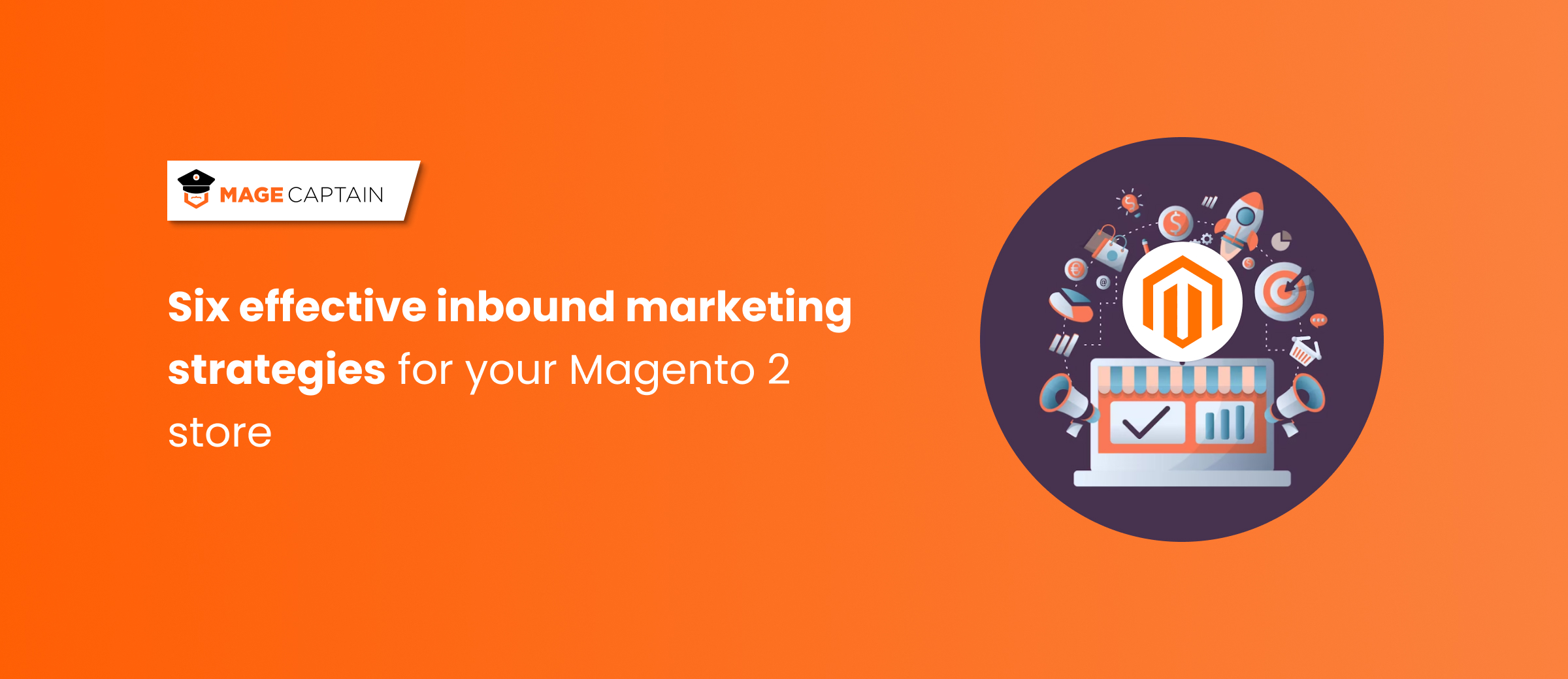We use cookies to make your experience better. To comply with the new e-Privacy directive, we need to ask for your consent to set the cookies. Learn more.
Build Inbound Marketing Strategy For Your Magento 2

Building a successful inbound marketing strategy is essential for e-commerce businesses using Magento 2. Inbound marketing is all about creating valuable and relevant content that attracts, engages, and converts prospects into customers. By implementing an effective inbound marketing strategy, businesses can establish trust and credibility with their target audience, which can result in higher conversion rates and more satisfied customers. Here's how to build an inbound marketing strategy for your Magento 2 e-commerce business:
Define Your Target Audience:
Understanding your target audience is key to creating an Effective Magento Strategy. Conduct market research to determine who your ideal customers are, what they're looking for, and what challenges they're facing. This information will help you create content that resonates with your target audience and meets their needs.
Create a Content Strategy:
Develop a content strategy that includes a mix of blog posts, videos, infographics, whitepapers, and other content formats. The content you create should be relevant, valuable, and helpful to your target audience. It should also be optimized for search engines to help increase visibility and drive traffic to your website.
Optimize for SEO:
SEO is an important component of inbound marketing. Optimize your content and website for search engines by using keywords, meta descriptions, and other SEO techniques. This will help your content rank higher in search engine results pages, increasing visibility and driving more traffic to your website.
Utilize Social Media:
Social media is a powerful tool for reaching and engaging with your target audience. Use social media platforms, such as Facebook, Twitter, and LinkedIn, to promote your content, interact with your followers, and drive traffic to your website.

Leverage Email Marketing:
In order to connect with and engage your target audience, email marketing is a really powerful strategy. Use email marketing to share your content, promote your products and services, and keep your subscribers informed about your business.
Implement a Lead Magnet:
A lead magnet is an incentive that you offer to prospects in exchange for their contact information. Offer a lead magnet, such as an eBook, webinar, or discount, to attract and convert leads into customers.
Track and Analyze Your Results:
Regularly track and analyze your inbound marketing results to determine what's working and what's not. Use tools like Google Analytics and HubSpot to track metrics, such as website traffic, conversions, and engagement, to help you make data-driven decisions and optimize your inbound marketing strategy.
Conclusion
building a successful inbound marketing strategy is essential for businesses using Magento 2. By following these steps, you can create a Magento strategy that helps you attract, engage, and convert prospects into customers, grow your e-commerce business, and achieve your marketing and sales goals.



